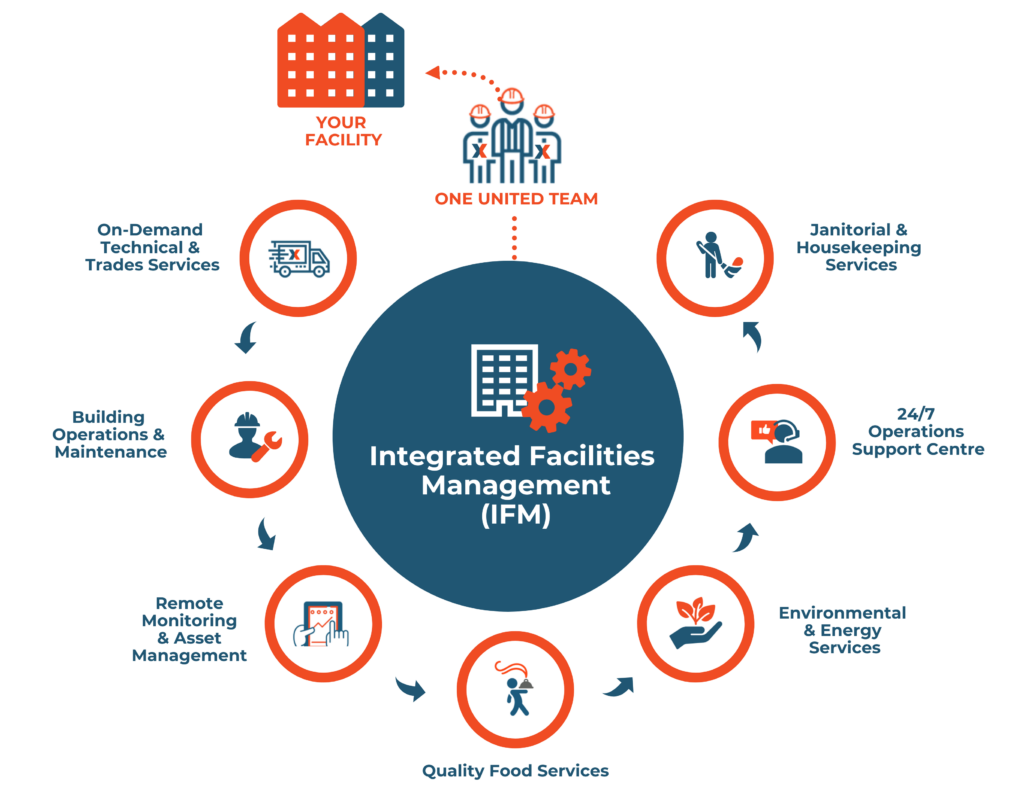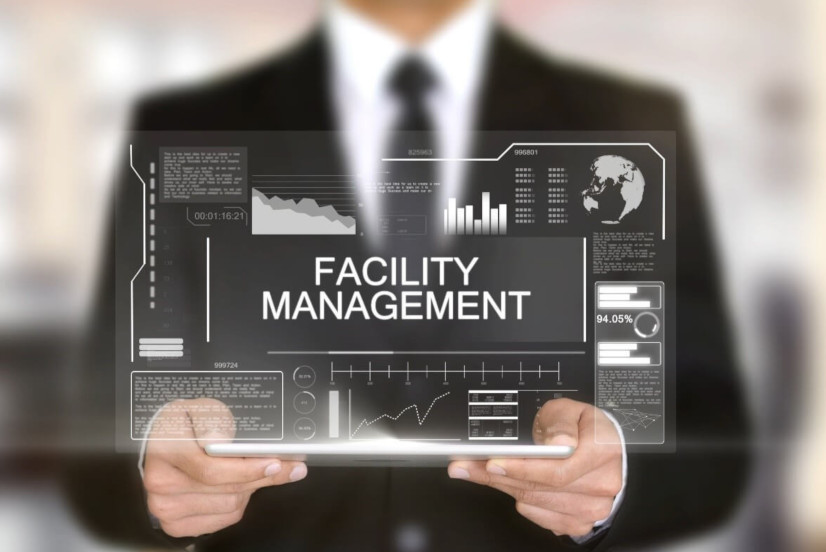Facility Management-- Streamlined Operations and Expense Savings
Facility Management-- Streamlined Operations and Expense Savings
Blog Article
Secret Fads Forming the Future of Center Management in 2024
As we expect 2024, the landscape of center administration is poised for considerable makeover, driven by several crucial fads. The combination of smart structure modern technologies and a shift in the direction of data-driven decision-making assurance to enhance operational effectiveness while prioritizing sustainability in practice. The appearance of hybrid work models is improving workplace environments, demanding ingenious style remedies that provide to evolving staff member needs. Amid these changes, the concentrate on resident wellness remains to acquire traction, emphasizing the significance of a healthy office. Exactly how these fads will materialize in practice continues to be a critical question for industry experts.
Smart Structure Technologies

Smart structure innovations encompass a wide variety of systems, consisting of intelligent lighting, a/c controls, and security systems. By integrating these systems, center managers can monitor and adjust parameters in real-time, bring about significant reductions in energy waste and functional costs. Wise sensors can detect occupancy degrees and readjust illumination and temperature level accordingly, making certain that power is only used when essential.
Moreover, these technologies promote enhanced information collection, permitting organizations to track use patterns and determine possibilities for additional enhancements. The application of smart structure innovations not only adds to sustainability objectives but additionally produces healthier workplace that can boost worker productivity and fulfillment.
As we relocate right into 2024, the adoption of wise structure technologies will likely accelerate, showing a wider shift in the direction of more smart, receptive, and lasting center management practices.
Data-Driven Choice Making
Increasingly, companies are leveraging data-driven decision making to boost facility management practices. By using information analytics, center managers can acquire actionable insights that dramatically enhance operational effectiveness and resource appropriation. The combination of advanced technologies, such as IoT sensing units and real-time surveillance systems, allows the collection of huge amounts of information on structure efficiency, occupancy prices, and power intake.
This wide range of info enables facility managers to determine fads, forecast upkeep needs, and proactively address issues prior to they rise. For example, anticipating analytics can anticipate devices failures, reducing downtime and repair costs. Furthermore, data visualization tools help with better communication amongst stakeholders, making certain that educated choices are made collaboratively.
Moreover, data-driven methods improve tactical preparation by allowing facility managers to examine the efficiency of existing practices and make educated choices regarding financial investments in innovation or infrastructure. As companies progressively focus on functional quality, data-driven choice production is positioned to become a cornerstone of successful center monitoring strategies in 2024 and past. Inevitably, the capacity to utilize information efficiently will equip organizations to create extra reliable, efficient, and durable facilities.
Sustainability and Environment-friendly Practices
The focus on data-driven choice making naturally aligns with the expanding focus on sustainability and green practices within center administration. As organizations significantly focus on environmental obligation, facility managers are leveraging analytics to maximize resource usage, lower waste, and lessen carbon footprints. This critical technique enables the integration of energy-efficient systems, such as LED lights, smart HVAC controls, and eco-friendly energy resources into center procedures.
Moreover, the execution of sustainable techniques prolongs past energy intake. Facility supervisors are adopting eco-friendly products and advertising recycling campaigns to create a round economy within their facilities. This not just enhances the ecological profile of the company but additionally fosters a society of sustainability among staff members.
Conformity with ecological laws is an additional essential aspect driving the fostering of environment-friendly techniques. By using data analytics, center managers can keep an eye on compliance metrics and identify locations for improvement, making sure adherence to global and regional sustainability criteria.
Crossbreed Work Models
A substantial shift in the direction of crossbreed work versions is reshaping the landscape of center management in 2024. This standard incorporates remote and in-office work, requiring a reevaluation of space utilization, resource allotment, and staff member interaction techniques. Organizations are progressively acknowledging the significance of versatile workspaces that cater to varied requirements and choices.
Center supervisors need to adjust by applying flexible office designs that support collaborative initiatives while supplying areas for focused work. This consists of the assimilation of modern technology to promote seamless interaction and cooperation amongst in-office and remote staff members. Smart building services, equipped with sensing units and analytics, enable real-time tracking of area use, making it possible for organizations to enhance their environments efficiently.
Furthermore, hybrid job designs highlight the requirement for efficient facility management content that prioritizes worker experience. In significance, the hybrid job version is changing center monitoring, motivating an aggressive approach to satisfy the progressing needs of the labor force.
Boosted Resident Health
As organizations embrace hybrid job versions, an enhanced concentrate on passenger wellness is coming to be indispensable to facility management strategies. Facility Management. This change acknowledges that a healthy and balanced and satisfied workforce directly affects efficiency and retention prices. Center managers are now prioritizing settings that advertise physical and psychological health, integrating elements such as all-natural illumination, biophilic layout, and obtainable wellness sources

Innovation plays an essential role in this evolution. Smart building systems can keep track of ecological factors and readjust setups in real-time, ensuring optimum comfort levels - Facility Management. Responses devices, such as occupancy sensing units and employee surveys, permit facility managers to continually fine-tune wellness initiatives based on passenger demands.

Final Thought
In 2024, the future of facility monitoring will be significantly influenced by the integration of clever structure technologies and data-driven decision-making, cultivating enhanced operational effectiveness. Sustainability efforts will prioritize eco-friendly techniques, while the development of crossbreed work models will demand adaptable office designs. Moreover, an enhanced focus visit their website on resident wellness with innovative cooling and heating systems and biophilic design will add to healthier job settings. These fads jointly emphasize the advancing landscape of center monitoring in feedback to modern obstacles and possibilities.
Center supervisors are advertising and embracing environmentally friendly products reusing efforts to create a round economic situation within their facilities.A significant change in the direction of hybrid job designs is reshaping the landscape of center administration in 2024.Furthermore, crossbreed job models stress the requirement for effective center administration that focuses on worker experience.As organizations Web Site embrace hybrid job designs, a heightened emphasis on resident health is ending up being integral to center administration methods.In 2024, the future of facility management will be dramatically influenced by the integration of clever structure innovations and data-driven decision-making, cultivating improved functional efficiency.
Report this page